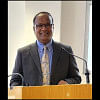Legal amendments will help universities thrive

Last month, news came that the government is considering a bill to amend the Private University Act, 2010 to fit the needs of the academic environment, to combat corruption, financial irregularities, and profiteering, and to improve governance. Notably, the bill proposes having a third of the trustee members be from academia, which would be a welcome change. While the bill is in discussion, let's look into some key areas that may benefit from amendments.
To make the whole system more effective, faculty members from within the university should be included in the trustee board to ensure a fairer share of governance. In Western countries, the board comprises the faculty senate representing the core faculty, and the university administration, which is not part of the senate. This ensures academic freedom. We should incorporate this concept into the new bill now or in the future.
A university's core faculty is the heart of the institution's community. These teachers define the identity of the institution and provide vision and leadership, and their work also contributes to meritocracy and branding. For example, Cambridge and Oxford are famous for their liberal arts core; Harvard is known for the business, medical, and law faculties; Chicago and UPenn brag about their business schools; and Yale and Johns Hopkins excel in medicine and social science. Also, core faculties are links to the alumni – a long-term thread that binds the university with society.
In Western countries, both in public and private universities, job security through a tenure system has favoured the development, growth, and sustenance of core faculties. The system has been able to establish a unique "creative culture" where conflicting ideologies are able to flourish under the same umbrella, facilitating the development of quality academic programmes.
In Western countries, both in public and private universities, job security through a tenure system has favoured the development, growth, and sustenance of core faculties. The system has been able to establish a unique "creative culture" where conflicting ideologies are able to flourish under the same umbrella, facilitating the development of quality academic programmes.
Public universities in Bangladesh carry a legacy of the Western education system. They have been very fortunate to have developed a core faculty that enjoys tenure. Comparatively, the private universities, as newcomers, did not have such faculties to start their programmes. They relied heavily on a large pool of part-time faculty members, some of whom were with public universities. National and foreign teachers have filled the gap in between. The faculty attrition rate at private universities is very high.
Despite the negatives, some of the private institutions have been able to develop a good faculty pool that has served for over six years, the typical time required for tenure in US universities. Perhaps, it is time that private universities consider offering tenure to bring stability in their academic system. The new or future bills should incorporate specific amendments and guidelines that would encourage the tenure system.
Developing a core faculty starts with a faculty pool. This is where we have fallen behind. There is a nationwide shortage of qualified faculty members in both public and private universities. Lately, universities have not been able to attract meritorious students to join academia. The price mechanism or economics is not in their favour. Higher paid jobs in other sectors (business) and job security (BCS or military) have been able to take away a big portion of the meritorious pool. Such a big issue needs a comprehensive approach.
Lately, the demand for starting PhD programmes at private universities has been raised. This is a timely and laudable idea. The doctoral programmes would fulfil the need for quality faculty. To launch such programmes, we should take a long-term approach. First, develop a core faculty in respective fields and then allow them to develop the programmes. Job security or tenure is paramount for that. Short-lived floating faculty may not be able to offer quality doctoral programmes.
The role of the core faculty should be taken cautiously. It is possible that, in the name of building a core, academia would build a self-serving exclusive circle. Such groups are likely to reject contrarian viewpoints. A classic example is the group that rejected Karl Marx's radical ideas. This defeats the very purpose of a university.
What is desirable is a core faculty that would engage in a "creative reinvigoration," facilitating learning in the process. The university administration can ensure this by being open and flexible. Hopefully, the new bill and future amendments would be able to bring such changes.
Dr Abu NM Waheeduzzaman is a professor of Marketing and International Business at Texas A&M University-Corpus Christi.

 For all latest news, follow The Daily Star's Google News channel.
For all latest news, follow The Daily Star's Google News channel. 











Comments